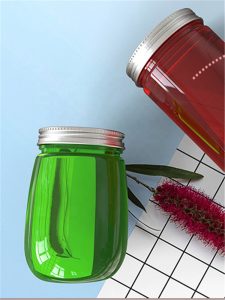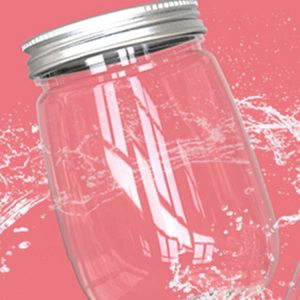The future of beverage packaging alternatives to plastic bottles is promising, driven by growing environmental concerns and a desire for more sustainable solutions. Several innovative alternatives are being explored and developed to reduce the environmental impact of beverage packaging. Here are some of the potential alternatives:
- Biodegradable Plastics: Biodegradable plastics, also known as bioplastics, are made from renewable resources like corn, sugarcane, or algae. These materials break down more easily in the environment compared to traditional plastics, reducing their long-term impact.
- Edible Packaging: Edible packaging made from materials like seaweed, rice, or other edible substances is being developed. These packaging solutions are not only biodegradable but also safe for consumption.
- Plant-Based Bottles: Some companies are working on creating bottles made from plant-based polymers like polylactic acid (PLA). PLA bottles are biodegradable and have a lower carbon footprint compared to traditional plastic bottles.
- Recycled PET: Increasing the use of recycled PET in beverage packaging can significantly reduce the demand for virgin plastic production. Advances in recycling technology are making it easier to produce high-quality PET from recycled materials.
- Glass Bottles: Glass bottles have been used for centuries and remain a viable alternative to plastic. Glass is infinitely recyclable and does not release harmful chemicals, but it is heavier and more fragile, leading to higher transportation costs and breakage concerns.
- Aluminum Cans: Aluminum cans are already widely used for beverages like soda and beer. They are lightweight, easily recyclable, and have a lower environmental impact compared to plastic bottles.
- Carton Packaging: Carton packaging, often used for beverages like juice and milk, is made from renewable resources and is recyclable. It has a smaller carbon footprint compared to plastic bottles.
- Pouches and Flexible Packaging: Pouches and flexible packaging are lightweight and require fewer materials than traditional rigid bottles. They are being explored as more sustainable options, especially for single-serving beverages.
- Refillable Systems: Refillable systems, where customers can return containers for refilling, are gaining popularity. Some companies are implementing refill stations or delivery services for bulk beverages to reduce single-use packaging.
- Digital Packaging: Digital technology may play a role in reducing physical packaging by enabling personalized drink formulations and dispensing beverages on demand.
While these alternatives show great promise, challenges remain in terms of cost, scalability, consumer acceptance, and infrastructure for collection and recycling. The future of beverage packaging will likely involve a combination of these alternatives, tailored to different beverage types and regional contexts.
As consumer awareness about sustainability continues to grow and regulations on plastic usage become more stringent, the beverage industry is under increasing pressure to adopt more eco-friendly packaging solutions. The transition to more sustainable alternatives will require collaboration between businesses, governments, and consumers to create a positive impact on the environment.




















